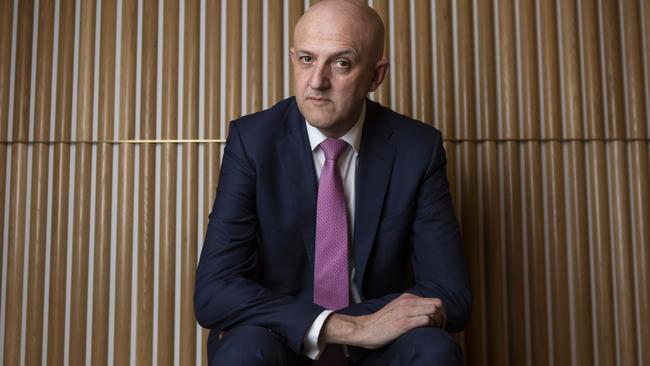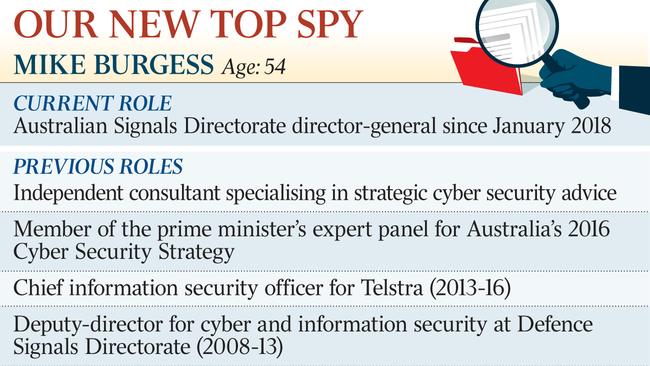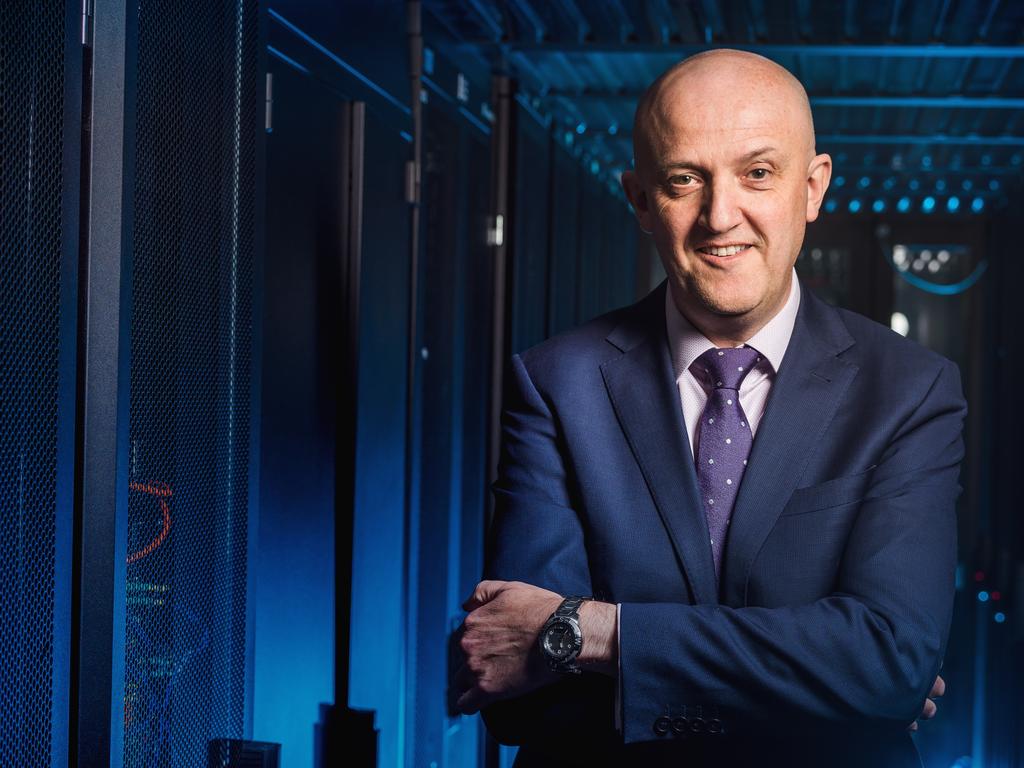Hi-tech test for new top spy
As new head of ASIO, Mike Burgess will tackle cyber threats and foreign interference by state actors, including China and Russia.

New ASIO director-general Mike Burgess will transform the domestic spy agency, increasing its use of sophisticated technology and cyber spycraft to counter growing foreign interference by state actors, including China and Russia.
Mr Burgess will lead an overhaul of the agency’s digital capabilities to meet hi-tech threats, and ramp up ASIO’s counter-intelligence operations after its predominantly anti-terror role following the 9/11 attacks and the rise of ISIS.
“The threat in Australia from espionage and foreign interference is very real, very serious, and ASIO works tirelessly,” Mr Burgess said yesterday.
“My role will be to continue that important work to identify foreign interference and espionage to make sure Australians and Australia’s way of life is secure.”
Mr Burgess’s experience as the nation’s top cyber spy at the Australian Signals Directorate was the deciding factor for Scott Morrison in appointing him the new ASIO chief, who will lead the agency at a time of unprecedented espionage threats.
The Prime Minister said Mr Burgess, 54, the ASD director-general and a former Telstra executive, was the standout candidate to replace respected ASIO chief Duncan Lewis when he retired next month.
He cited Mr Burgess’s work “across the spectrum of operations required of a contemporary signals intelligence and security agency, including foreign intelligence, cyber security and offensive operations”.
“He brings a wealth of knowledge and understanding of Australia’s national information, intelligence and security landscape gained through many years of experience spanning public service and private industry,” Mr Morrison said.
Mr Burgess takes on the role amid growing concerns over foreign interference in Australian politics and universities, a surge in hacking and intellectual property theft, and the identification of China by Western nations as a clear strategic threat.
Those who know him say Mr Burgess brings an analytical, risk-based approach to the role.
At ASD, he advised Malcolm Turnbull not to allow Chinese companies Huawei and ZTE to be involved in Australia’s 5G rollout.
The advice followed an intensive war-gaming exercise, using an offensive ASD hacking team to see what harm they could inflict using a 5G network linked to critical systems.
“Offence informs defence,” Mr Burgess told the Australian Strategic Policy Institute last October.
“This is about more than just protecting the confidentiality of our information — it is also about integrity and availability of the data and systems on which we depend. Getting security right for our critical infrastructure is paramount. At the end of this process, my advice was to exclude high-risk vendors from the entirety of evolving 5G networks.”
Dennis Richardson, a former defence and foreign affairs secretary and director-general of security, said the incoming ASIO chief had the right skill set to take the agency forward.
“It’s an absolutely first-class appointment,” Mr Richardson said.
“He knows the technology, and when you look at the challenges we are facing, technology is at the heart of a lot of it. Mike is firmly placed to merge the HUMINT (human intelligence) activities of ASIO with the technological challenges they face.”

Mr Burgess’s appointment follows a 2017 review of ASIO’s use of technology, recommending major changes to the agency to make better use of “augmented decision-making and data science”, establish a strong digitally enabled culture, and forge partnerships with industry, academia and government.
The review initiated a major transformation of the agency “to ensure ASIO remains fit for purpose in an increasingly complex security and operating environment”, Mr Lewis said at the time.
Home Affairs Minister Peter Dutton said Mr Burgess had a “remarkable background”, and would embark on a new phase of transformation at ASIO.
“I don’t think anybody would argue against the fact that Mike Burgess is one of the most respected people within the Australian intelligence community and, indeed, globally,” Mr Dutton said.
Anthony Albanese welcomed the appointment, saying Mr Burgess was a respected intelligence officer with “highly relevant national security experience”.
“As the leader of ASIO, Mr Burgess will be central to upholding Australia’s national security interests and the safety and security of the Australian people at home and abroad,” the Labor leader said.
“This is also a position which requires fine judgment in balancing the individual rights and way of life of Australians with those security imperatives.”
Additional reporting: Joe Kelly




